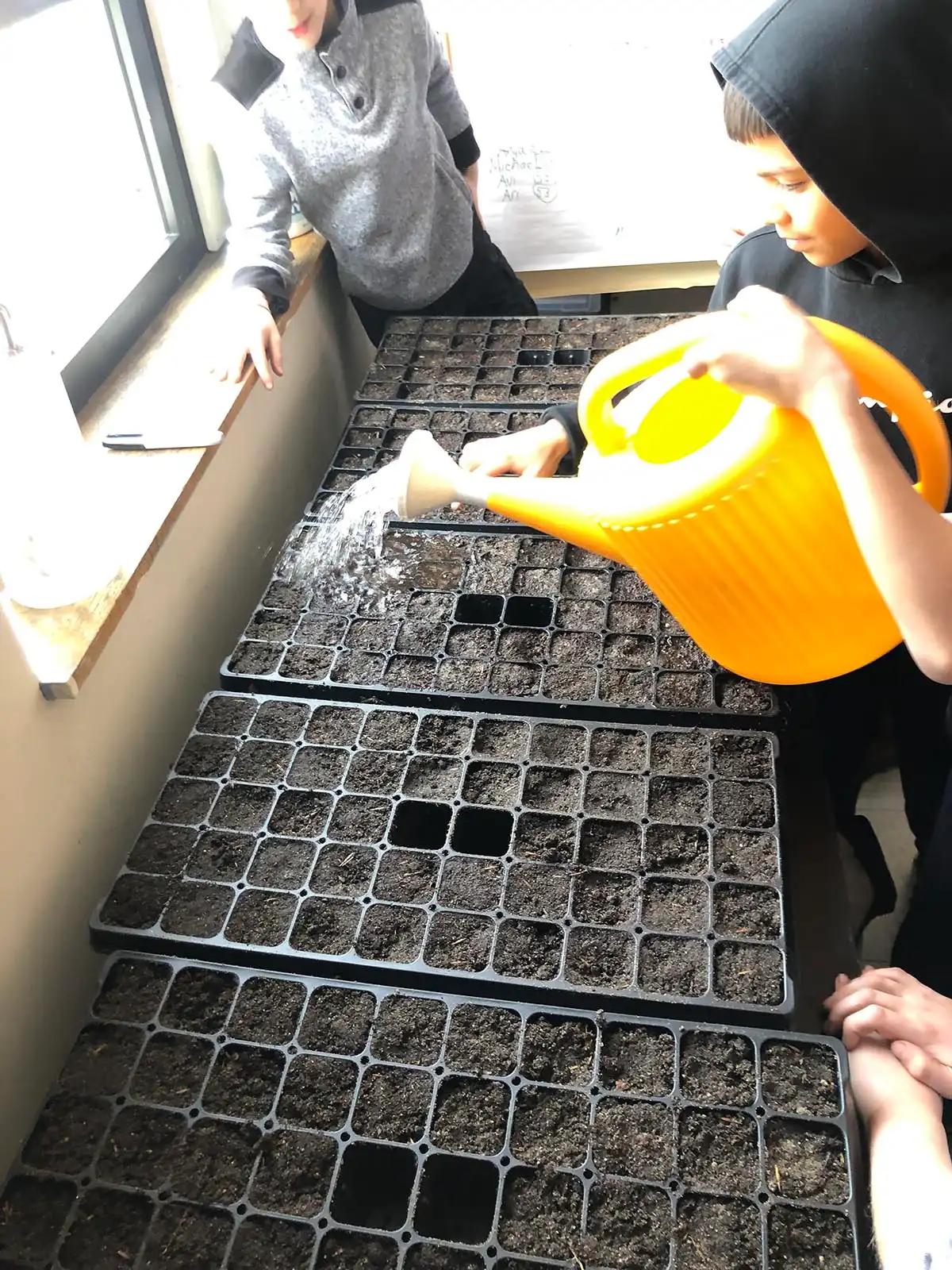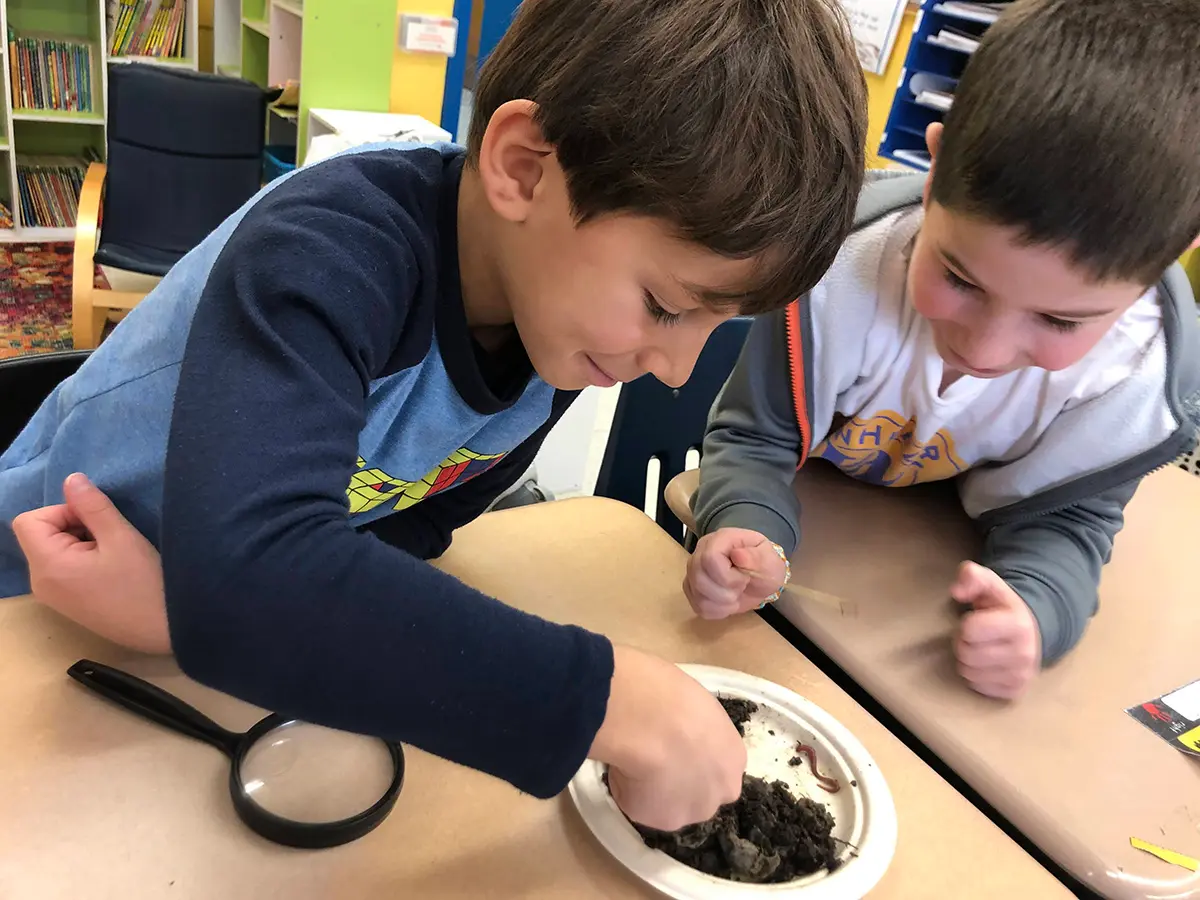Save the Bay
At the Jewish Community Day School of Rhode Island, we believe that hands-on, real-world experiences are crucial to inspiring students’ curiosity and deepening their understanding of science. Our partnership with Save the Bay, an environmental organization dedicated to preserving and protecting Narragansett Bay, enhances our upper elementary science curriculum and provides students in grades 3–5 with engaging, field-based learning opportunities.


One of the highlights of this partnership is a year-long project focused on salt marsh restoration for our fifth graders. This program allows students to immerse themselves in the local environment and explore the interdependent relationships that exist within these critical habitats.
During their first field trip to Prudence Island, students observe the biodiversity of the salt marsh—examining plants, birds, and marine life that depend on this unique ecosystem. They also harvest seeds from Spartina alterniflora, a species of seagrass that plays a vital role in maintaining the health of the marsh. Throughout the school year, students learn about the roles of plants in the food web, photosynthesis, and the importance of salt marshes in protecting against storm surges and flooding. In the spring, they return to the marsh to plant the seeds they grew in the classroom, directly contributing to the restoration of this important habitat.

Throughout the school year, students learn about the roles of plants in the food web, photosynthesis, and the importance of salt marshes in protecting against storm surges and flooding. In the spring, they return to the marsh to plant the seeds they grew in the classroom, directly contributing to the restoration of this important habitat.
This hands-on experience helps students understand the connection between classroom science and real-world environmental impact, while fostering a deep sense of stewardship and responsibility.

In addition to the fifth-grade project, our third and fourth graders also engage with Save the Bay’s environmental education programs. Third graders begin their study of local habitats with an exploration of Narragansett Bay, while fourth graders focus on animal adaptations with the help of Horseshoe Crabs.
Both grade levels participate in field trips that connect classroom lessons with hands-on experiences in the bay’s ecosystems—bridging curiosity and science through active exploration.

This collaboration strengthens our science curriculum by giving students a deeper connection to their local environment and fostering environmental literacy. By studying local habitats and engaging in restoration work, students gain a greater appreciation for the natural world and develop the skills and knowledge to become responsible stewards of the environment.
Through these experiences, our goal is for students to understand the intricate relationships between humans and nature and to inspire meaningful action toward sustainability.